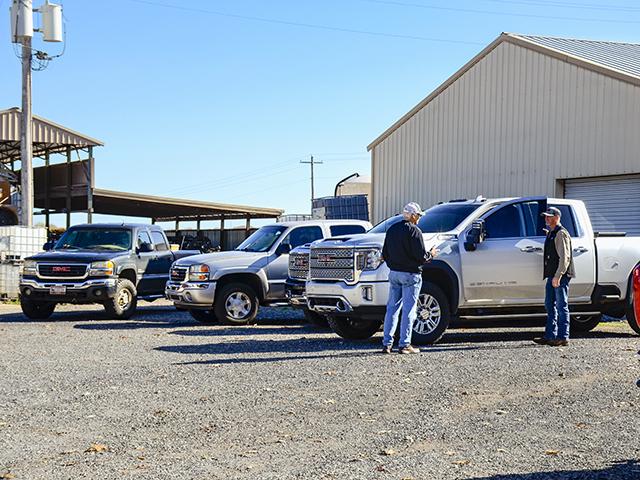Taxlink
Tax Rules for Farm Truck Depreciation
How things have changed. Back when COVID hit, auto dealers were practically giving cars and trucks away. Today, it takes months to special order a vehicle, and there is little selection on dealer lots.
With high income, some farmers are desperate for a write-off. When purchasing a truck, you can't assume it's 100% deductible in the year of purchase. The IRS has restrictions on cars and trucks that prevent smaller vehicles from being depreciated or expensed in one year.
So, what are the rules? The vehicle must be used 50% or more in a qualified business. If the business use is 75%, only 75% can be depreciated (or 75% lease payments expensed). There are also special rules if the vehicle is used by someone not directly connected to your business.
Let's start with passenger vehicles (cars, trucks and vans that are under 6,000 pounds gross vehicle weight). If you place a passenger automobile in use for the 2022 tax year, the maximum depreciation and/or expense deduction shall not exceed:
-- First year: $11,200 (additional $8,000 if you elect bonus depreciation)
-- Second year: $18,000
-- Third year: $10,800
-- Fourth-plus year: $6,460.
P[L1] D[0x0] M[300x250] OOP[F] ADUNIT[] T[]
Now, here is the confusing part: The IRS issued a revenue procedure (Rev. Proc. 2022-16 if you have trouble sleeping) for those who use bonus depreciation on passenger vehicles. It's too complex to get into, but a key takeaway is that you might end up depreciating the passenger vehicle past the five-year asset life.
If the vehicle is under 6,000 pounds, I will ask my clients if they intend on keeping the car/van/truck for more than five years. Most times, the answer is "No." If that is the case, the client might be better off leasing the vehicle (two- to three-year higher-mileage lease, but be aware if the fair market value exceeds $56,000, there may be inclusion of income issues) or simply taking mileage.
Large vehicles (gross vehicle weight over 6,000 pounds) are not subject to depreciation limits but limited to $27,000 of Section 179 expense (per IRS draft form). Like all things IRS, there are exceptions:
-- Vehicle is designed to allow more than nine people to sit behind the driver (i.e., bus).
-- Vehicle has cargo area of 6 feet or more (i.e., extended-bed pickups).
-- Vehicle does not have seating behind driver (commercial van).
If any of these exceptions apply, there are no limitations on Section 179 expensing. Most trucks and large SUVs fall under the 179 expense limitation; however, you can still use bonus depreciation.
I want to throw out a warning: At the time of this writing, Congress has not passed a tax-extender bill. If no extender is passed, 100% bonus goes away at the end of 2022. Starting in 2023, you can only bonus 80%. This would mean heavy vehicles that don't fall under the exceptions can't be 100% written off starting in 2023.
**
DTN Tax Columnist Rod Mauszycki, J.D., MBT, is a tax principal with CLA (CliftonLarsonAllen) in Minneapolis, Minnesota. Read Rod's "Ask the Taxman" column at https://www.dtnpf.com/…. You may email Rod at taxman@dtn.com.
(c) Copyright 2023 DTN, LLC. All rights reserved.





